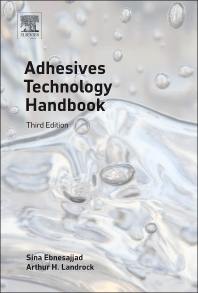CVC THERMOSET SPECIALTIES: Epoxy Resins, Tougheners, and Curatives for Oil and Gas Pipeline Applications
According to CVC, coverings and coatings made with its HyPox CTBN-modified epoxy resins can help protect pipelines from corrosion.

CVC Thermoset Specialties recently announced that it has developed advanced materials to help oil and gas pipeline engineers meet challenges such as corrosion, cathodic disbondment, and high-temperature resistance. Pipelines are an efficient way to transport oil and natural gases. Safety requirements are becoming more stringent as drilling underground reaches new levels and demand rises for laying pipelines in extreme cold and high-temperature environments.
Corrosion of buried pipelines is a leading cause of electrochemical reactions, which can lead to a loss of metal integrity. This can result in leaks, spills, or even explosions. According to CVC, coverings and coatings made with its HyPox CTBN-modified epoxy resins can help protect pipelines from corrosion. The company reports that HyPox resins are proven to improve cathodic disbondment and toughness properties at various temperatures when used in girth weld and in FBE coatings.
During fracking, oil and/or gas is released from the earth under high pressure and temperature. Coatings for fracking applications must withstand the high temperature and acidity of the materials flowing through the pipeline. CVC reportedly offers EPALLOY epoxy phenol novolacs for high-temperature- and chemical-resistant coatings, especially when sulfur-based acids are present.
Oil and gas pipelines must also be protected internally from solid particulates contained in oil and gas fluids like inorganic salts, partially polymerized oils, silicas, dirt, greases, and acidic compounds. As these particulates travel through pipelines, they become aggressively corrosive projectiles. Coatings designed for internal pipeline applications must be engineered to be tough against the high abrasion created by these fast-moving particles. CVC’s EPALLOY product line also reportedly offers a range of epoxy phenol novolacs and THPE-based specialty epoxies with high Tg and high chemical resistance for such applications.
For more information, visit www.cvcthermoset.com.
Looking for a reprint of this article?
From high-res PDFs to custom plaques, order your copy today!







